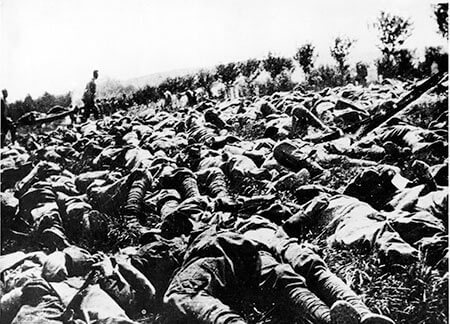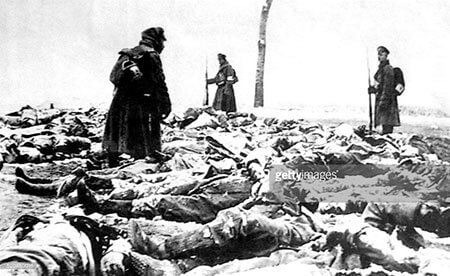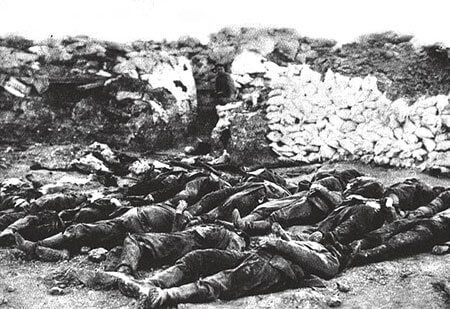| The Nation-State Feeds on the Bodies of Soldiers | ||||||
When the hand-to-hand fighting began in a typical Mexican war, the battle took on an aspect unlike anything known in Western civilization. The purpose was not to kill the enemy, but to capture him so that he could be offered as a sacrifice to the gods. Captured prisoners from the losing side would return with soldiers from the winning side to the victorious city-state, where they would ascend the sacrificial block—and become victims—gifts to the god.
However, each city-state, whether victorious or not, required sacrificial victims. When soldiers from the losing side captured soldiers from the winning side, they too would return home—offering the captured soldiers as sacrificial victims. Upon returning from one typical battle, Aztec warriors reported back to Emperor Moctezuma. They told him that they had taken a goodly number of captives, but that 370 of their own warriors had died or been lost through capture. Moctezuma replied:
In a certain sense, it didn’t matter which side had won the battle: as long as the gods were fed with the blood of sacrificial victims. From the god’s point of view, neither side won or lost. The god could not lose in any case.
In his analysis of Western warfare, Paul Kahn observes (2008) that at the conclusion of a battle, the battlefield is strewn with “the disemboweled and beheaded, with severed limbs and broken bodies”. Viewing the battlefield from a distance, it is not clear “which side is the winner and which the loser”. Both the conscript and his enemy alike “suffer the same burden of physical destruction.” In short, as Moctezuma might have put it, “the nation state feeds alike from both sides.” In a certain sense, it doesn’t matter which nation is the winner and which the loser. As long as there are dead bodies on the battlefield to feed the hungry nation-state. |
 The bodies of Italian soldiers dead on the battlefield—victims of a gas and flame attack during World War I.
The bodies of Italian soldiers dead on the battlefield—victims of a gas and flame attack during World War I. Battlefield covered with the dead bodies of
Russian soldiers
Battlefield covered with the dead bodies of
Russian soldiers  German bodies after a battle in the Spring of 1915.
German bodies after a battle in the Spring of 1915.